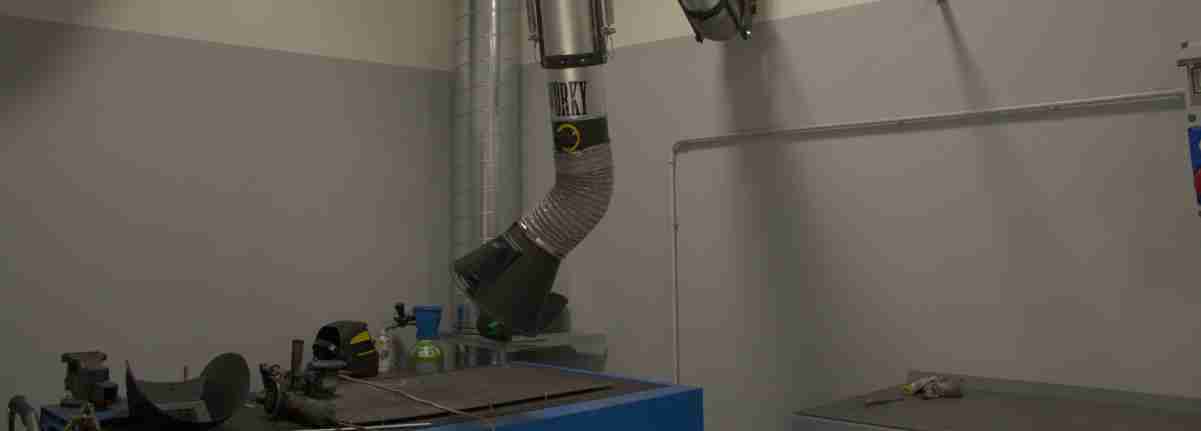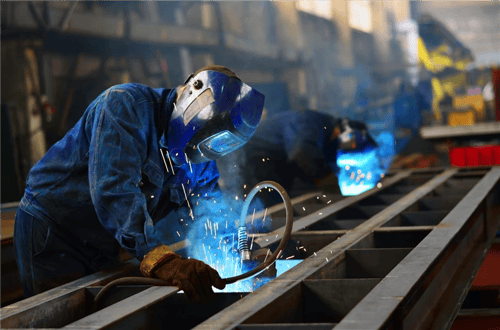 Welding fumes pose a significant threat to health and consequently to the productivity of workers inside the company. During the welding process, the generated harmful chemicals and airborne particles can cause several problems both in the short and long term.
Welding fumes pose a significant threat to health and consequently to the productivity of workers inside the company. During the welding process, the generated harmful chemicals and airborne particles can cause several problems both in the short and long term.
In the following article, we will discuss the risks associated with welding fumes for business productivity and the importance of extraction systems in facing this challenge.
Welding fumes: which industries are at greatest risk?
Welding fumes are generated in industries and companies where welding operations take place.
Some examples are:
- Manufacturing: Manufacturing companies that produce a wide range of products can use welding as part of their production process. This includes industries such as automotive, aerospace, marine, electronics, engineering and many more.
- Construction companies: companies involved in metal construction, such as the manufacture of steel structures, bridges, industrial buildings and infrastructure, often use welding during the construction phase. Therefore, they have to face any possible risks related to worker safety, welding quality and regulatory compliance.
- Chemical and petrochemical industry: chemical and petrochemical companies often use welding for the construction and maintenance of plants, tanks, reactors and pipelines.
- Industrial equipment sector: companies that manufacture industrial equipment and machinery, such as metalworking machinery, lifting systems and material handling equipment, may use welding as part of the manufacturing process.
- Repair and maintenance workshops: companies offering repair and maintenance services for vehicles, industrial equipment and machinery endanger to be exposed to welding fumes during repair welding activities.
- Welding production companies: companies specialising in the manufacture and sales of welding equipment, welding consumables and welding materials may be exposed to welding fumes during their operations. These companies must ensure the safety of workers and may face risks associated with the handling and storage of hazardous materials.
- Crafts workshops: small workshops or artisans involved in metalworking, blacksmith or the production of metal objects may use welding as part of their activities.
These small size companies may not be highly regulated to adequately face the risks associated with welding.
These are some examples of companies where welding fumes can be dangerous both for worker safety and for the Company productivity and efficiency.

How do welding fumes jeopardize efficiency?
There are several reasons why welding fumes can jeopardize a Company productivity:
Health problems for workers: welding fumes contain a variety of toxic and irritating substances, such as metal oxides, heavy metal vapors, gases and fine particles. Continuous exposure to these fumes can cause respiratory problems, such as bronchitis and asthma, and long-term lung damage. Workers with health problems will be less productive and may require numerous sick leave.
Extreme fatigue and tiredness: breathing in harmful chemicals for a long time can affect the quality of sleep, reducing concentration and decreased productivity.
Regulatory compliance: in many countries, there are precise regulations that companies are required to comply with in order to protect workers from risks related to exposure to welding fumes. If a company fails to comply with regulations, it could face legal sanctions or the closure of the business. The compliance process requires time and resources, which could be used for other more productive activities for the company.
To preserve productivity and protect the health of employees, the implementation of welding fume extraction systems is essential. These systems are designed to capture and remove welding fumes directly at the source, preventing them from spreading into the work environment and reducing workers' exposure to hazardous substances.
Effective smoke extraction systems help to increase a company's productivity and revenue because they make the environment ideal that allow increase in productivity.
It is essential, however, to rely on an experienced partner who can advise on the best solution according to the company's needs, offering customized services.
WORKY technicians can develop projects based on the individual customer's needs, analyzing each reality in depth, then studying ad hoc solutions.
If you wish to learn more, we offer you a free session with one of our experts: book it now!



